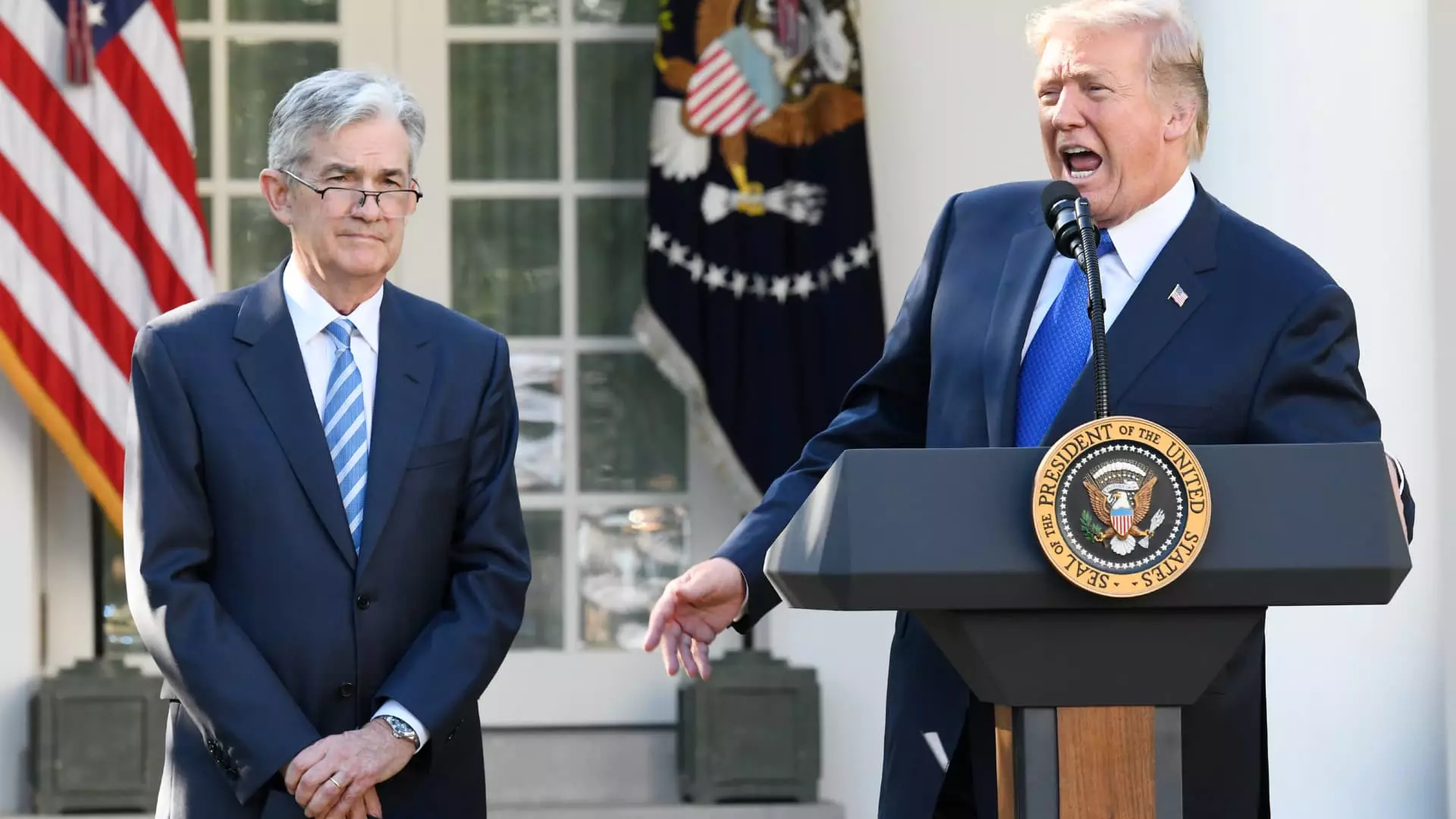In a commanding display of hubris, former President Donald Trump recently urged Federal Reserve Chairman Jerome Powell to slash interest rates by a staggering one percentage point, even contradicting his own proclamations about the strength of the U.S. economy. This disturbing inconsistency begs the question: how can one simultaneously tout economic success while clamoring for drastic measures that suggest underlying vulnerability? Trump’s call for aggressive monetary policy, while annoyingly predictable, underscores the dangers of a leader who prioritizes short-term gains over long-term economic stability.
The irony spills from Trump’s social media calls to action, proclaiming, “Go for a full point, Rocket Fuel!” In doing so, he unwittingly reveals a deep-seated misunderstanding of economic fundamentals and the vital role that the Federal Reserve plays. His drumbeat for rate cuts comes at a time when, according to the latest Bureau of Labor Statistics report, U.S. hiring surpassed expectations by nearly 14,000 jobs—a figure that complicates his narrative of economic distress. To request a sizeable cut in rates despite positive job growth illustrates not only a lack of comprehension but a reckless disregard for the consequences of such an intervention.
The Federal Reserve’s Dilemma
The Federal Reserve must navigate a maze of conflicting pressures and expectations born from Trump’s erratic demand for aggressive monetary easing. The notion that cutting rates would result in lowered borrowing costs and benefit the American public is, at face value, seductive. However, it’s crucial to remember that the Federal Reserve’s role is not to serve political whims, but to maintain economic equilibrium and prevent inflationary disasters—a trap that previous administrations have unfortunately stumbled into time and again.
Trump’s incessant comparison to actions taken by other central banks, particularly the European Central Bank, serves to further muddy the waters. Unlike the ECB, which has been responding to its own stagnating economy, the United States shows signs of resilience—even amidst turbulent international trade circumstances largely instigated by Trump’s own tariff wars. The desire to align U.S. policy with less stable economies demonstrates a troubling willingness to gamble with the livelihoods of American citizens for perceived political advantage.
Inflation: A Looming Specter
One of the most disconcerting aspects of Trump’s push for rapid interest rate reductions is the risk of igniting inflation—a specter that haunts both consumers and policymakers alike. By insinuating that Powell could later counter inflation should it rear its head, Trump dangerously simplifies what is often a complex interplay of economic factors. Rising prices fueled by a poorly timed cut could destabilize the economy, eroding the purchasing power of everyday Americans.
Moreover, economists suggest that the Fed’s cautious approach stems from a keen awareness of this precarious balance. Trump’s rhetoric presents Powell as an obstructionist, implying that he is thwarting economic prosperity, when in fact the cautious navigation of monetary policy is what keeps an already fragile balance from tipping over into chaos. The former president’s continuous pressure on the Fed to engage in policies more akin to a boisterous rally than sound economics is alarming and revelatory of the immature lens through which he views economic governance.
A Dangerous Precedent
Trump’s unabashed attacks on the Federal Reserve Chairman contain historical echoes of previous populist leaders who sought to manipulate economic institutions for their purposes. By fostering an environment wherein fiscal leadership is vilified in favor of short-lived political gains, a precarious precedent is set whereby economic policy becomes a tool of populism rather than a commitment to responsible governance.
As the political landscape becomes increasingly polarized, tonight’s headlines are not merely about rates but about something more insidious: the erosion of institutional integrity. Trump embodies a leadership style that revels in chaos, demonstrating to Americans that the façade of control through brash proclamations can lead to economic instability that threatens the very foundations of the responsible governance we so desperately need.
In the end, this is not just about interest rates or jobs reports; it is about the profound consequences of creating an economic narrative rooted in theatrics rather than wisdom. It serves as a reminder that a healthy economy thrives on prudent oversight, not the whims of an erratic leader seeking validation through financial manipulation.

